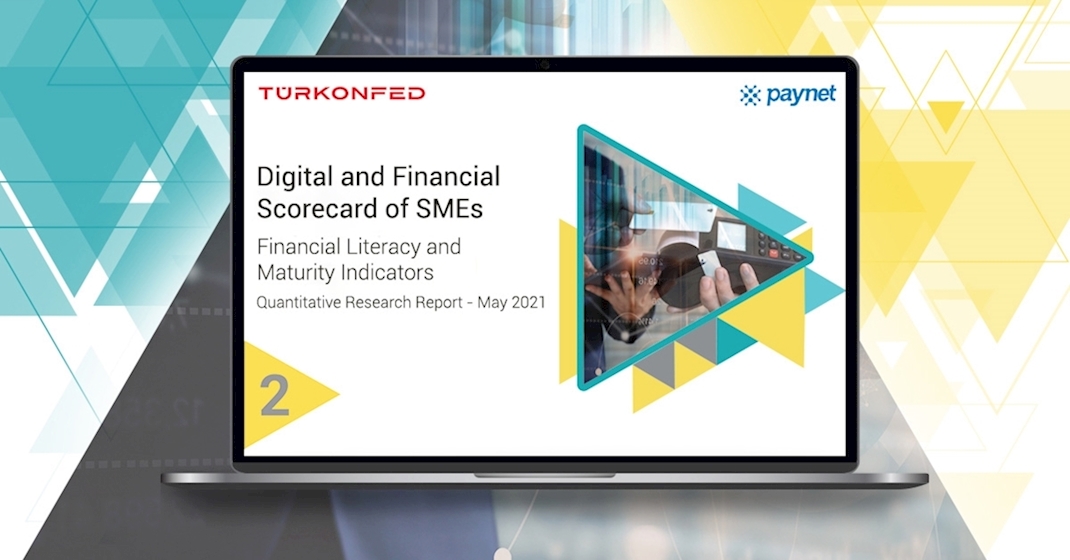The second phase of the “Digital and Financial Scorecard of SMEs” research conducted by TÜRKONFED and Paynet by interviewing 1,000 SMEs in 11 provinces, titled “Financial Literacy and Maturity Indicators”, has been published. According to the report, SMEs aim to invest the most in production and product development in the next three years. In this process, businesses expect the creation of support plans, increased incentives and government-supported loans from public institutions, while demanding favorable loan conditions from financial institutions.
SMEs Aim To Continue Production And Product Development

The second phase of the "Digital and Financial Scorecard of SMEs" research conducted by the Turkish Enterprise and Business Confederation (TÜRKONFED) and Paynet to determine the digital, financial, technological infrastructures and development levels of SMEs and their future expectations has been published. In this phase titled “Financial Literacy and Maturity Indicator”, the results regarding the financial solution preferences, financial management and financial maturity levels of SMEs were shared.
The investment priorities of SMEs do not change in the next three years
According to the research on Digital and Financial Scorecard of SMEs, the SMEs have invested in production (44.1 percent), product development (43 percent), human resources (35.9 percent), digital/technological (32.4 percent) and facilities (30.7 percent) during the period from 2017 to 2020 and aim to invest in the same areas in the next three years despite a slight decrease. According to the research, this situation reveals that SMEs prioritize maintaining the current situation rather than improving their competencies.
Businesses have expectations from both public and financial institutions
The research also showed that companies have some demands and expectations from public institutions, banks and payment institutions for financial solution alternatives. Accordingly, 11 percent of enterprises expect the creation of support plans, 6.7 percent expect incentives to be increased and 6.2 percent expect state-supported loans to be granted from the public institutions. While favorable loan conditions with 18.1 percent and low interest rates with 10 percent are the top two expectations from the banks, favorable loan conditions (6.3 percent) and low commissions (3.1 percent) are demanded from payment institutions and fin-techs.
Insurance has the highest importance level among financial matters
The financial issues that SMEs attach the most importance during the period from 2017 to 2020 are insurance with 60.2 percent, payment plan creation with 57.9 percent, cash management and sustainability with 57.5 percent, while investments rank the fourth with 56.2 percent. For the next three years, it was determined that the insurance remained in the first place and the investment target decreased to 51.2 percent. On the other hand, it was revealed that the gap between importance and information is very close to each other in areas that companies prioritize in the continuity of their activities, such as insurance, investment and pension plans. It was understood that the distance has been opened in the areas of payment plan, financial risk management and cash management, which seem more complex and strategic.